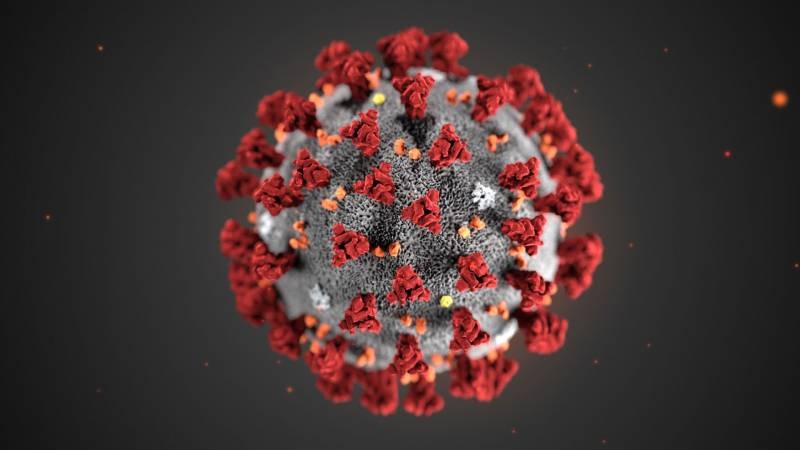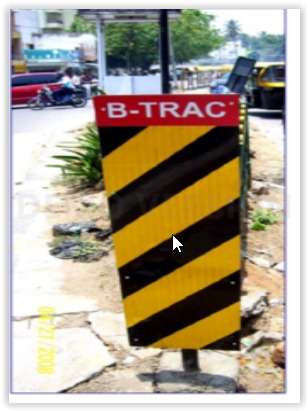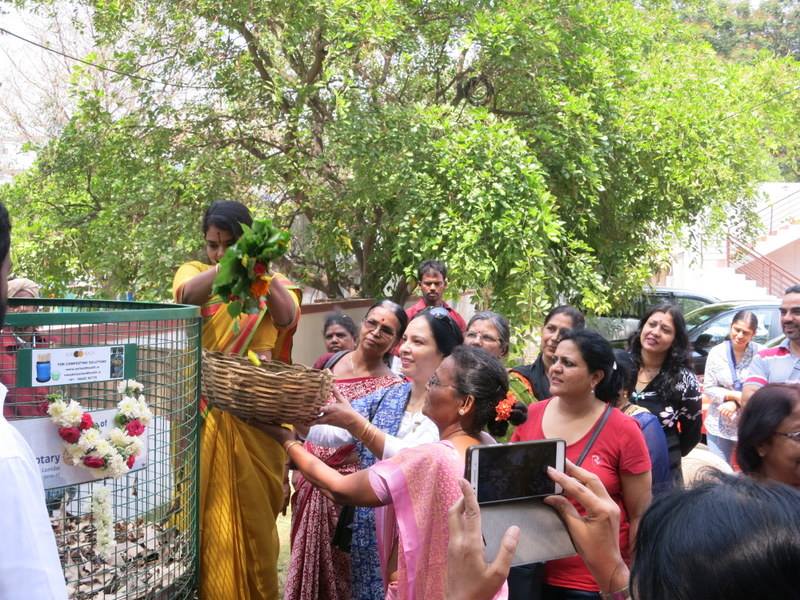
one paw at a time.
All Beings Matter, So Let’s Live in Harmony.
What We Are Doing ?
The city of Bengaluru is continuing to spread its tentacles beyond what is considered “city limits”. Encounters with animals including wildlife are inevitable as we encroach upon their habitat to build our own spaces. Sustainable conflict mitigation calls for knowledge and means to co-exist with wildlife within a given micro ecosystem, like Whitefield(we mean Mahadevapura), such that no harm is caused to either humans or animals.
Animal welfare is the well-being of non-human animals. Whitefield Rising respects the right of all animals to live in co-existence with humans. The Constitution of India [Article-51-A (g)] – Fundamental Duties of a Citizen includes:“It SHALL be the DUTY of every citizen of India, to PROTECT and IMPROVE the natural environment including forests, lakes, rivers and WILDLIFE, and to HAVE COMPASSION FOR LIVING CREATURES.”
It is no surprise that Animal Welfare is also Environment Welfare is also Our Welfare!
But what is a surprise is that our own actions affect all three of the above thus exposing our own cognitive dissonance.
For instance, reports such as this one from McKinsey identifies meat consumption as major source to global warming, recommending shift in dietary habits by reducing the share of animal protein in the global consumption by half – https://www.mckinsey.com/business-functions/sustainability/our-insights/mckinsey-on-climate-change (Pg 95) Clearly our personal action here has neither helped the animal nor the planet.
Here are some ways in which our animals in our neighbourhood have no welfare.
Dogs: We are afraid of them, chase them away and consider them a nuisance/menace to deal with.
Bees: In our urban areas, we rip out hives afraid of their stings, use harsh pesticides etc that cause their habitats great damage. On the other hand, we readily purchase and consume the precious honey they collect going flower to flower for their own purposes.
Fish: Chemicals from the products we use in our homes and offices end up in the water bodies harming aquatic life immensely .
Snakes: Fear of Snakes has meant that a snake spotting means immediate alarm and clubbing to death of the poor being even if it were merely a rat snake doing us a favor.
Birds: Indiscriminate felling of trees, sprayings of chemicals and reducing diversity in trees, polluted lakes has been a serious issue for our neighborhood birds.
Chicken shop/Other butchers: It is hard to argue that the little birds stacked in the battery cages about to be beheaded and skinned or the corpse of the goat hanging on the butcher’s hook visible to all on the main roads are any kind of welfare for the animal at all. They are either dying or dead.
Cows: We see cows tied to a post permanently or roaming the streets and eating garbage. For more information on how cows are affected by our actions do see the “Read More” section below.
Whitefield Rising recommends ways in which we can change our actions for their and our betterment. It is no coincidence that doing all the below actually helps us personally in the end.
Live Sustainably: There are enough options in the market today such that we can effectively clean ourselves and our homes with products that do not damage our water bodies/plants. Look for brands like Wild Ideas, Body Shop and others to support.
Build Compassion through awareness: Meet rescuers of dogs. Understand the work of bees and why their preservation is important. Watch videos and read books to understand the horrors of factory farming. Be a butcher for a day to experience the difficulty of taking a life.
Watch videos such as this speech: https://www.youtube.com/watch?v=hyhQUcSsSZE
Eat well for yourself and the environment: Eating seasonal whole foods that are plant based and locally produced is one of the cheapest, healthiest and most compassionate ways of living life. Avoiding all dairy and meat, one can build health while bringing welfare to all the animals that did not need to die to be on our plates.
Use the checklist below to see if you can tick mark as many of these as possible.
- You eat Plant based food avoiding all animal products (70% contribution to climate change)
- You work with dog rescuers to better manage and reduce the dogs on our street so they are happy and yet we are not affected (Yes this is possible with the ABC program and regular feeding)
- You are aware of how to keep a snake unfriendly habitat
- You let bees thrive addressing them humanely only on the rare occasions they are a threat to your own lives
- You are aware of and actively support keeping a bird friendly habitat.
- You avoid all pesticides, non eco-friendly cleaning solutions and body care products
- You rescue injured/abandoned animals or you support those doing the same
- You feed birds, dogs, cats, cows.
- You spend time with nature to observe critters small or large
We have done our bit!
We have done innumerable activities encouraging a plastic free, chemical free lifestyle.
We regularly organize sessions online to help anyone transition to a Plant Based lifestyle.
In 2016, WR organized a snakes’ awareness workshop at Ecumenical Christian Centre (ECC).
A WR workshop on 25 September 2016 at ECC saw eminent environmentalist Yellappa Reddy providing invaluable tips to the audience about green living.
The Dumas Trust’s work on stray dogs’ welfare has got valuable support from WR.
Earlier in 2017, a Whitefield resident completed a full marathon within five hours at Auroville. He ran the 42.195 km course 380 km away to raise funds for a specific vaccination programme of Dumas Trust at Whitefield. He ran for a cause, for the welfare of stray dogs, and his noble initiative had the support of WR.
SNAKES — FROM HERE ON, SHOULD BE LINKED OUT. TABS ALREADY IN USEFUL RESOURCES; DOGS & CATS NEED TO BE CREATED
Rapid development in areas like Whitefield leads to increased conflict with snakes. Snakes were never and will never be restricted to just the rural and wild areas of any locale. They are very commonly found in urban habitation which calls for a basic understanding of the species and to be appreciative of the role they play in metropolitan ecosystems such as Whitefield. Over 280 species of snakes found in India out of which less than 50 are venomous. Of these only 4 venomous species (Common Krait, Cobra, Saw Scaled Viper, Russell Viper) can be commonly found in Whitefield.
What preventive measures can you take to reduce encounters with snakes?
To reduce snake population in the area, use 3D formula (Deny Food, Deny Shelter and Deny Access).
One can also have a regular check up of the community surroundings by a snake expert to ensure the place is not hospitable for snakes – that food, shelter and access is denied. Snake experts are open for such arrangements. Do check with the names listed at the bottom of the page.
At community level
- Strong pest control measures for rats
- Regular garbage disposal to minimize free-ranging rats and rodent population.
- Remove Snake Super-highways across community walls in form of vines and creepers.
At household level
- Keep back-yards, front-yards and garages clutter-free.
- Keep homes sealed
- Close holes in the walls or windows for air-conditioning pipes.
- Close holes in the walls for cooking gas pipes.
- Close space under doors.
- Avoid the habit of leaving doors open or unattended.
- Install secured mesh windows rather than open windows.
- Leave bathroom doors closed.
- Seal spaces in the kitchen and washer-room for water disposal.
- Avoid certain types of landscaping plants that provide shelter spaces e.g. thick shrubs, bamboo growth, high grasses.
- Seal holes in the soil in front-yard and back-yards made by under-ground dwellers e.g. Rats, Rodents and so on.
To prevent snake-bite, take measures for personal safety. Ex.
- Never put your hand or foot where you cannot see.
- Children should be cautioned against such behavior especially fetching balls from the bushes, clutter, etc.
- Adult helpers and children to be cautioned against such behavior while plucking flowers, etc.
- Exercise caution before putting on shoes from shoe-racks located outside the home.
- Use a torch/flash-light during late evening or night walks.
- Do not panic if you see a snake, back-out as slowly and carefully as you can. Sudden movements may aggravate the creature.
- Common variety snakes seen around Bengaluru do not fly or jump. However, some of them can strike at least half or three-quarter of their body length. Hence, always be attentive to keep a safe distance between yourself and the creature.
- Pet owners may train pets to keep distance from snake with use of a rubber snake and snake hissing sound (http://whnt.com/2016/05/20/taking-action-preventing-your-pets-from-being-bitten-by-venomous-snakes/).
In case of snake-bite
-
- Call for an ambulance right away (Dial 102 and/or 108).
- If it is a pet that is bitten, call Thubarahalli Pet Hospital at 080 4113 2727.
- Until ambulance arrives, one may take following measures of First-aid:
- Call for an ambulance right away (Dial 102 and/or 108).
- Keep the victim calm and restrict movement. With increased heart-rate, venom spreads faster in the blood.
- Make sure the victim does not panic. Often, panic causes more complications to symptoms and situation.
- Position victim such that area affected by bite is below the level of the heart. With use of pillows, etc. keep level of heart higher than level of bite location.
- If possible, note the size, colour and pattern of the snake and report it to the doctor.
DO NOT do any of following
- DO NOT Apply tourniquet
- DO NOT Give aspirin or any pain killer.
- DO NOT Suck the wound manually (with mouth) or through a machine
- DO NOT Apply any pressure to the bite site
- DO NOT Give alcohol or warm beverage to the victim
- DO NOT Cut the wound
- DO NOT Wash the wound
- DO NOT Cover the bite wound
- DO NOT Burn the wound or apply burned cotton
- DO NOT Rub the wound
Steps to be taken when you spot a snake
- Do not panic
- Children should be taught to call an adult
- Never attempt to handle the snake
- Keep a safe distance of about 7 to 10 feet from the snake
- Do not block the snake’s path. Give the snake a chance to leave the area.
- If the snake is more than 10 feet away in an outdoor area, thump your feet.
Benefits of having snakes in an area
- They keep the rodent population in check. Especially in developing areas.
- Venom of snakes is used to produce anti-venom for treatment of snake bites.
- Venom has also been used in variety of drugs which are used to treat other human diseases.
- They play an important role in the food chain and hence keep the ecosystem in check.
Anti Venom availability
- Columbia Asia Hospital 080 6165 6666
- Vydehi Hospital
- Manipal Hospital Whitefield
- RxDx Whitefield
Snake help
- Vivek – 99026 99552 (does monthly/regular check up of surroundings for snakes)
- Girish – 9845080903
- Mohan – 9845287861
- Krishna – 9880041131
- Spurthy – 7406079036
- Kumar – 9901600332 (Marathahalli)
- Nagabhushan – 9341240482 (Hoskote)
- Anees 080-5487424/ 98440-37424 (http://www.islamawareness.net/Children/news1.html)
Legal Provision
- Killing a snake or any wildlife is illegal and attracts penalty – financial and imprisonment.
- It is against the law to be in possession of snake – alive or dead and is a severe offense.
BBMP has authorized snake rescue and removal volunteers
- BBMP Hotline 080 2222 1188
- Spurthy (7406079036, 9844530033)
- Mahesh (9916968959)
- Nagabhushan (9341240482)
DO NOT call un-authorized snake catchers as it is illegal as well as snakes caught by such individuals may end up in illegal wildlife trade exposing the community to unnecessary hassle.
BEES
To Bee or not to Be
Bee-hive is a very good environmental indicator – as it indicates pollen and humidity in the surrounding. These may be present either in your balcony or neighbours’ balcony or in general in surroundings in the form of flowering plants and water. If conditions are right, beehive will keep forming and these are not harmful bees, generally they stay in their hive and do not hassle humans.
If you go outside and seem to be dived and “pinged” by bees you should get away. Walk away slowly without swatting. Take shelter. They “ping” or dive bomb you when you get too close. It’s the first step before they sting in many cases.
Typically bees do not bite unless they are provoked or attacked by some birds like eagles (which is very rare here). In my opinion, unless these bees are close to balconies or around kids’ areas or within the reaching distance of humans, we can leave them.
If they are within a reaching distance, you can try to smoke them. Of course, they will go nearby and try to build the hive again. Once they build the hive in one place, there will be bee pheromone in that area which attracts other bee colonies and some other colony may come and start building the hive in the same place.
- So, after smoking them and removing the hive, the bees will not stop coming. We will just have to guide them to build a hive in a place that will not bother anyone – some methods are listed below.
We humans need patience and love for nature. Every living being has the right to live as we do. Unfortunately many of us amidst our hectic schedule forget the law of nature. It is very easy to kill bees and get rid of them, but we fail to understand we will be ultimate sufferers.
Let bees be bees!
Removing bee hives: If you want to get rid of the hive, try one of these approaches.
- Peppermint spray
- Take a bucket of water. Mix peppermint spray and keep it below the honey comb. The bees will leave the comb as they can’t take the smell.
- Dhoop method
- Put “Dhoop” or “Incense” right underneath the hive (say at a 6 to 8 feet distance) in the evening and see to it that there is low-intensity smoke for a few hours regularly. Bees do not like smoke. The method of smoking them with high intensity sudden smoke removes them but they keep coming back for what they have left behind – or at least what their instincts tell them since they fled by sudden smoke they left behind their eggs, honey, etc. When you put low intensity smoke in the area of bee-hive regularly, it indicates to them that this is not a fit surrounding for them to make hive. And in case if there is already a hive present, bees work on sucking up all honey and some wax before flying away en-mass to form hive in a more suitable location. And when you see that the remaining dry hive is without any bees for a few days, you can remove it. There would not be any honey in it. It would be a dry comb.
- Light method
- Put light (ideally direct sun-light or reflect light with mirror) on the hive continuously. Generally, hives are formed away from direct sun-light since bees do not want to dry up the honey. So with a reflector mirror if you arrange for direct sun-light on the hive, they will get the message and relocate their hive with their honey elsewhere.
- Box Trap Method
- Get a cardboard box, about medium size. Buy some sticky traps and place them inside. Take the center of a few flowers, (pollen works best) and sprinkle on the sticky traps. Cut a hole, about 3 inches around, just enough for those bees to come charging in. Try pouring some honey on the sticky traps as well, to lure more bees. Place the cardboard box close to the hive, about 5-10 feet away. Wait. Pretty soon, many of the bees will be stuck in the box, and you can call someone to haul them away. Use extreme caution as many bees will still be alive and angry. Don’t go near the box.
Honey collectors
- Dilip-9980225322
- Karan-9901490882
- Krishnappa-9632822897
STRAY DOGS
Stray Dogs are everywhere in Whitefield. Those who love dogs worry about their survival and mistreatment. Those who fear them (often justified) take extended trouble to avoid them. Those who dislike them actively suggest inhumane ways of handling the situation. Bottom line, their presence is worrisome to all residents alike. However, we don’t need to re-invent the wheel. Other cities in India having the same problem have already worked out effective solutions that are summarized below. Note that “culling” or herding dogs to the pound and killing them has never helped any country in the world solve this problem.
What you should do as a community: Each step is important
- Domesticate the Dogs: This means you let a few hang around your community in the front without shooing them away. They will “guard” your community and also build trust leading to effective next steps to help sterilize them. They are also very territorial and will guard against new strays coming into the area. Apply for a legal card for this.
- Eliminate Garbage Dumps: It’s proven that where there is litter and garbage, there will be stray dogs. Whitefield Rising’s Waste Management group is actively working this angle
- Feed the Dogs: If you regularly feed them, they will no longer be aggressive and will be very amenable to being led to getting sterilized. “See how easy it is to feed the dogs”
Vaccination and Sterilization: The above three steps will allow the “capturing” of the strays which is generally a HUGE issue in order to avail of the ABC (Animal Birth Control) program. This will then avoid new puppies and the growing population of strays.
Work with your Association and educate your community members and neighbors about the situation with Stray Dogs. This is important so the dog haters don’t hate you as well
What you will avoid
- Rabies
- Overpopulation
- Dog bites and Aggression
- Howling at night
- Hunger related dog fights
What you should know about the law
- You cannot intimidate or threaten someone trying to feed dogs
- You cannot beat or intimidate stray dogs
- The Government bans the use of Live dogs for research. Support all those campaigns that come your way as they try to stop those that continue to flout this and inflict unimaginable pain on a living being.
Adopting a dog: If you want to adopt a pet
- Adopt from CUPA and join the Whitefield Dog Lovers Group on FB
- Especially avoid breeders unless you can be sure how they are treating their animals. If you hear horror stories, you won’t be able to sleep. When we buy from breeders we create the demand that then creates the monster of suppliers that are unscrupulous.
Learn about empathy:
All responsible citizens of the world are those with Empathy. Teach this to everyone you encounter and especially children you see being cruel to any animal. Take your kids to Gerry Martin farm locally so they can interact with animals.
When stray dogs roam the streets, begging for food, and most people just pass them by, not feeding them, not giving them water, not showing any kind of love for an animal that would have done anything for them had the situation been reversed, one questions the priorities of that society.
Resources
Dog feeding ID card: http://www.strays.in/index.php/2013/01/awbi-identity-cards-for-street-dog-feeders-colony-caretakers-their-relevance-and-how-you-can-get-them/
https://wiki.whitefieldrising.org/How_to_deal_with_stray_dogs
https://wiki.whitefieldrising.org/How_to_bury_dead_animals
https://wiki.whitefieldrising.org/How_to_find_your_perfect_pet_dog
STRAY CAT ISSUES
As with stray dogs, many communities have come to have issues with cats. Increasing numbers have led to dog-cat fights, up turned milk cartons and waste baskets to name a few.
What can you do to control the stray cat population?
Read all about it in this article featured in Citizen Matters by Whitefield residents – Stray cat problem: How a community ensured safety of both cats and residents
























